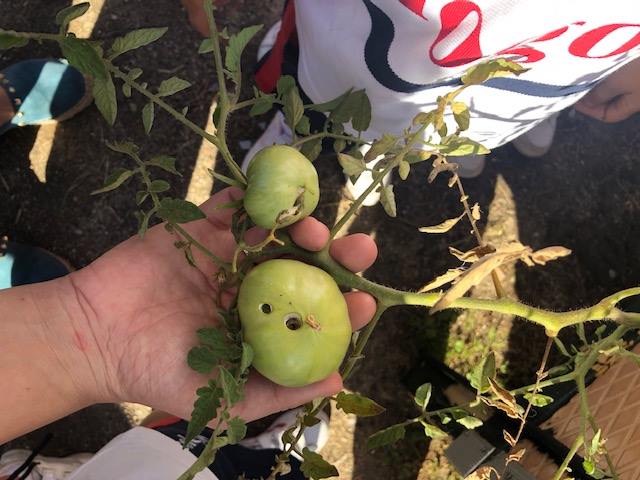Son muchos los centros educativos que en la actualidad utilizan el huerto escolar, no solo como una herramienta didáctica, sino como una estrategia de enseñanza para despertar y motivar una conciencia ecológica. Cuenta con amplios beneficios y actividades que se pueden hacer con los alumnos usando este gran recurso de aprendizaje transversal.
El huerto escolar es un área para el cultivo de hortalizas, frutas, plantas ornamentales o medicinales, entre otras. Este espacio ofrece la oportunidad a los alumnos de valorar un ambiente natural en el que se puede aprender y fomentar una serie de actitudes de convivencia, responsabilidad y colaboración, esenciales para el desarrollo del niño.
Beneficios del huerto escolar
La utilización de un huerto escolar de Logos International como recurso educativo ha demostrado tener múltiples beneficios en nuestros alumnos, que no solo contribuyen al desarrollo de conocimientos y habilidades, sino también a la formación de valores y actitudes indispensables en el proceso de desarrollo. Te invitamos a conocer algunos de ellos:
- El huerto escolar permite la integración de distintas áreas de conocimientos, funcionando como un eje transversal e interdisciplinario en las diferentes etapas de la educación, desde la educación inicial donde el niño comienza a interactuar de manera única con el medio ambiente que lo rodea, hasta el bachillerato donde participa de forma activa en los procesos ecológicos y de formación.
- Permite que los alumnos experimenten e interactúen de una forma única con el entorno natural.
- Fomenta valores de cooperación, paciencia, constancia y responsabilidad en los alumnos.
- Promueve la organización de tiempo y espacio, creando habilidades para establecer el momento correcto para el riego de las plantas, además de tener que evaluar los metros cuadrados de los que se dispone para realizar la siembra.
- Desarrolla habilidades motrices a través del manejo de las herramientas e instrumentos de cultivo.
- Es una herramienta motivadora para desarrollar hábitos de cuidado y responsabilidad ambiental.
- Permite conocer el valor nutricional de las frutas y alimentos, a la vez que favorece una alimentación equilibrada y saludable.
- Puede contribuir con la enseñanza de las matemáticas, teniendo en cuenta conceptos como: cantidades, formas geométricas, áreas, superficies, distancia, tiempo, progresiones, entre otros.
- Promueve la participación de las familias de forma directa en la escuela. Por ejemplo, un familiar aportando su experiencia en jardinería y cultivo, o indirectamente cuando se realiza en casa por petición de los propios estudiantes.
- Permite tomar conciencia sobre la utilidad de los desechos orgánicos y cómo estos pueden ser aprovechados para la elaboración de abono.
- Contribuye a romper con la rutina escolar, en un espacio libre, lleno de actividades físicas y emocionales.
Actividades del proyecto de Huerto Escolar en Logos International:
El propósito de un huerto escolar en Logos International Schol no es crear una zona para el cultivo, sino involucrar a los alumnos y demás miembros de la comunidad educativa en actividades eco-saludables. Son muchas las actividades que llevamos a cabo en el huerto escolar, entre ellas destacamos:
· Recolección de semillas
El proceso de cultivo comienza con la semilla, planificar varias actividades para su recolección es una tarea divertida, mientras se adquieren conocimientos sobre su conservación y almacenaje.
· Iniciación a la siembra
Los alumnos pueden iniciar sus actividades en el huerto escolar sembrando algunas semillas, para ello se pueden utilizar diversos recursos como macetas o mesas de cultivo, entre otros.
· Elaboración de abono orgánico
La elaboración del abono es un proceso sencillo que permite aprovechar los desperdicios orgánicos de una forma eficaz, contribuyendo con un principio de cuidado y desarrollo sostenible.
· Construir un espantapájaros
Es una actividad divertida en la que a nuestros alumnos les encanta participar, fomentando el valor de cuidado y protección de sus espacios y cultivos.
Son muchas las actividades que se pueden realizar en un huerto escolar tanto para la diversión como para el aprendizaje de los alumnos: descubrir nuevos olores, producir color con las hojas, elaborar remedios caseros…
En Logos International colegio privado situado en Las Rozas, valoramos la importancia de un huerto escolar como un recurso significativo dentro de la labor educativa. Nuestros pilares se apoyan en la formación de valores e innovación que nos hacen ir más allá en la búsqueda de nuevas herramientas para el fortalecimiento de nuestra Ecoescuela para que todos participen, desde los alumnos hasta la comunidad educativa.


